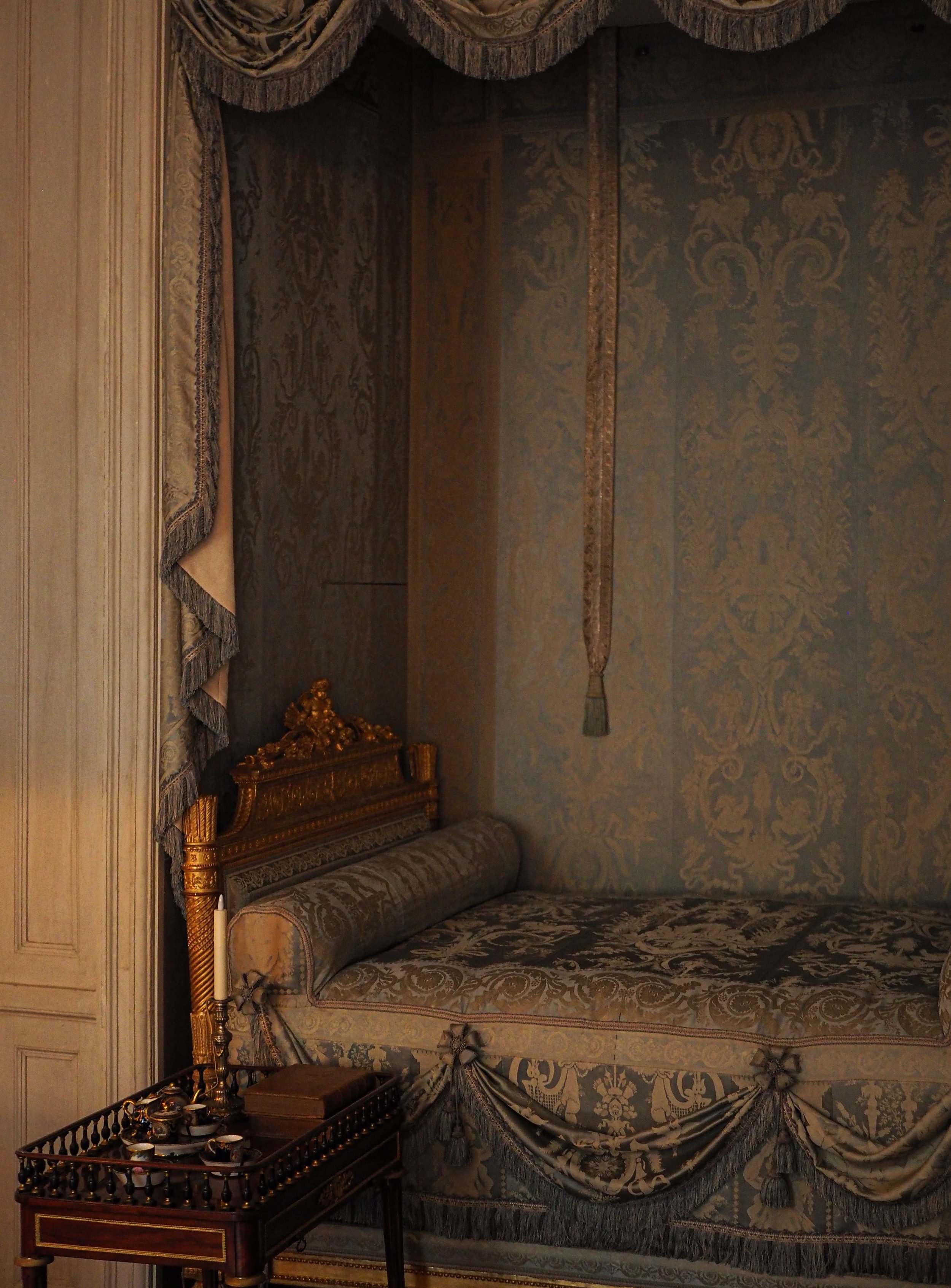The Ministry of Tiny Creatures

The Ministry of Tiny Creatures
Julia Bartel
I remember a summer downpour and the recognition that there was something in the road. Huddled right on the yellow line, the bird had its shoulders bunched up around its head and its little beak tucked against its chest. It opened one eye at me, then closed it again, too weak to fight.
I scooped the bird up into my hands and brought it back to the car, where I held it close to my chest and stared at it in wonder. I could feel the flutter of its frantic heartbeat against my palm, where my own blood thrummed on its march to my heart: the tandem heartbeats of a girl and a bird, separated only by a thin layer of feathers and skin. The bird trembled with pain, or cold, or fear, and the tip of my index finger was about half the size of its silken head, which I stroked as if to comfort it.
On the drive to the vet’s office, the bird slowly blinked at me and flexed its sharp little feet, which were pressed up under its belly, seeming to test their mobility. I touched the edge of its wing, the skin there so thin I might as well have been touching the bone itself. I couldn’t believe the unbelievable intricacy and preciousness of that creature. My hands an oyster, the bird a pearl, I felt in that moment an overwhelming sense of the love of God.
*
There have been times in my life where God winked at me. I call it the ministry of tiny creatures. Like the time I was praying next to a lake, out in the country, and a red fox walked up to me and stared at me from a foot away, its fur like fire in the morning sun. Or like the time I desperately prayed for a pet even though circumstances forbade me from having one, and the next week my phone lit up with a text about some kittens who needed a home and would I be interested in taking one? (I was, and I did.) Little creatures have a direct line to my heart, and God knows it.
*
In Mary Doria Russell’s philosophical gut-punch of a science fiction novel, The Sparrow, characters refer to this phenomenon as “turtles on fenceposts”. A crew of friends—scientists, doctors, and linguists, ranging in spiritual backgrounds from agnostic to atheist to Jesuit priest—overhear a transmission from a distant alien planet and hatch a plan to go, funded by the Society of Jesus, in order to “love God’s other children” there. Despite countless dangers, the crew make it to Rakhat and every almost-setback seems perfectly suited to be overcome by their exact range of supplies and expertise. “‘Kinda spooky, ain’t it,’ one of the priests muses. ‘Like we say back home, when you find a turtle settin’ on top of a fencepost, you can be pretty d— sure he didn’t get there on his own.’” “Turtle on a fencepost” becomes the deadpan response to any situation where the hand of God appears to be moving in a totally miraculous way.
I believe we all have moments of feeling seen by God that would seem boring or out of place or merely coincidental if it happened to anyone except us—moments so specifically orchestrated for us, it could be nothing other than a turtle on a fencepost. The ministry of an unexpected run-in with a friend. The ministry of your coffee being paid for by the person ahead of you in line. The ministry of finding a gorgeous unknown spot while hiking somewhere new. These moments remind us of the specificity of God’s love; one character in The Sparrow, noticing the fencepost turtles that continue to bless the crew, feels increasingly “unable to resist the beauty of belief.” I think God loves to remind us that we are intimately seen and known by him. It’s why I like to pray very specific prayers, even in the small things: because the Father is gentle and loves to bless His children with good gifts. Jesus invites us into specificity of prayer for this very reason, according to Luke 11—if any good father would so revel in the joy of generosity to his children, how much more does our Father in heaven look after us?
The book of Matthew also uses this line of logic, specifically figuring birds as examples of God’s care for his children. Birds (most often, sparrows) are lowly, Matthew says; God cares for them; therefore, He must care for us, his children, the imago dei, the crown jewel of creation, even more (Matthew 6:26). God clothes the sparrows, so He must desire even more to clothe and care for us. Not even a sparrow can fall, Matthew writes (10:29), without God seeing it; how much more must our pain tug at his heart?
This particular verse is a cornerstone of The Sparrow. Its protagonist is Emilio Sandoz, a Jesuit priest who pioneers the mission to Rakhat. While his crew of friends has many reasons for wanting to go to Rakhat, Emilio feels himself to be uniquely called by God to go there. The book begins when Emilio has just arrived back on Earth: physically, spiritually, and emotionally desolated, he is the only surviving member of the crew that he believed God would lead and protect. He struggles to put back together his shattered body and shattered faith. His journey of recollection and healing forms the bulk of the novel.
*
Musing over his suffering one day like the friends of Job, two of Emilio’s friends consider the age-old problem of a God who seems distant in the midst of great pain. “Matthew ten, verse twenty-nine,” one of them says. “Not one sparrow can fall to the ground without your Father knowing it.” The other replies, “But the sparrow still falls.”
Emilio sees himself as that fallen sparrow—a tragic figure cut down by either a horrible twist of fate, or by a careless God who didn’t step in when He should have. He feels violated and cruelly tricked by the moments that made it seem like God really was placing turtles on fenceposts. While, as the author, Russell seems inconclusive on how God positions Himself to our suffering—and while the sparrow does indeed fall, like the fledgling robin that dropped from a tree into the road before my car—I see in Scripture a God who, in the person of Jesus, fell on the sword of sin for us. I see a God whose gentle and specific love met us on the cross and continues to meet us in the day-to-day substance of life, whether leaving the nest in transcendent joy or lying broken on the yellow line.
I have walked through suffering, as we all will this side of heaven—suffering that almost took me out—and yet I know that one day I may still face pain like Emilio’s, so all-consuming that he thought he’d been ejected from God’s hand. It makes me scared of what the future may hold. But then I recall the snake held aloft in the wilderness, the boat holding a faithful few as it rode the waves of a worldwide flood, the cry of a woman in the desert whose despair caught the ear of an angel. The Bible shows us that Christ makes a way through suffering: not above us, nor ahead of us, but intimately near us.
It did seem like a divine appointment to drive up and spot that robin just after it had broken its wing, according to the vet we brought it to. It could easily have been crushed, or attacked by a predator, all because it tried to fly before it was ready. Yet there I was. The bird needed someone, but I needed it too: I needed to cradle the bird in my hand and bring it to safety in a physical manifestation of the Gospel story, and to be reminded of the care the Lord has for even his smallest creatures.
Several days after arriving at the vet, the young robin recovered in a chicken coop with such luxuries as an automatic feeder, a heat lamp, and other chicks to befriend. Its “after” photo was a stunning contrast to the way I’d found it—its feathers dry and fluffed, its eyes bright, its crest gleaming. That bird was living in Aslan’s new country. When I thought of the parallels to the way Christ’s blood transfers us from death to life—from Hades to Heaven—I cried.
In a period of painful waiting and uncertainty in my life, I held that darling robin in my hand and felt God reminding me that He holds me like that.
That He loves me like that.
Julia Bartel
Writer & Poet
Photography by Alex Glebov




